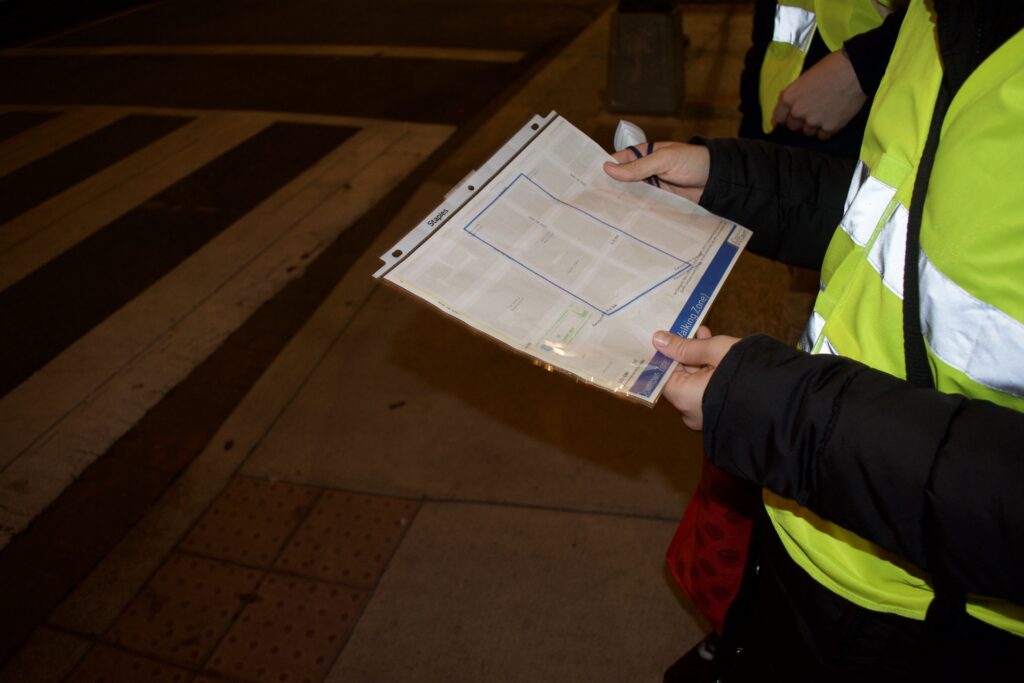The D.C. Council last week debated a range of additions to the District’s fiscal year 2022 budget legislation, including a successful amendment to raise taxes on high-income earners as well as a failed proposal to expand hero’s pay for the city’s essential workers.
In an 8-5 vote, council members agreed July 20 to amend the FY 2022 Budget Support Act by raising taxes on residents who make more than $250,000 a year. Subject to final approval in early August, the resulting revenue is slated to help bring funds to support increasing the salaries of child care workers, the creation of a universal basic income for low-income households, and funding enough permanent supportive housing (PSH) vouchers to end homelessness for potentially thousands of families and individuals over the next few years.
An estimated $100 million in FY 2022 would climb each subsequent year, reaching a projected $175 million in fiscal year 2025. By then, the tax will provide approximately $75 million annually for a new District program titled “Birth-to-Three” that aims to improve mental health and child care services for families in the city.
Ward 1 Councilmember Brianne Nadeau, who co-introduced the amendment, said the plan calls for several kinds of housing investments targeted at a wide range of people experiencing homelessness. The plan includes an annual investment of 1,267 PSH vouchers, which include wraparound services for mental health and other care for unhoused residents who have a qualifying disability, have experienced homelessness for more than a year, or have had at least four episodes of homelessness in the past three years. A second element, Nadeau said, provides 300 Targeted Affordable Housing vouchers, which work as rental subsidies for families who need financial support to remain in their homes. The plan also includes 400 Local Rent Subsidy Program vouchers for LGBTQI+ residents, domestic violence survivors, seniors and returning citizens. Part of the funds raised through this tax would also help fund D.C. Flex, a four-year subsidy for qualifying households that can be used in whatever way the family needs.
Ward 6 Councilmember Charles Allen worked with Nadeau, Ward 4 Councilmember Janeese Lewis George, and several others to draft the amendment to the FY 2022 budget. During the debate, Allen described the measure as necessary to provide relief for people experiencing homelessness and other vulnerable residents in the District.
“We have always known there are massive inequalities and inequities in the District, and this past year and a half has put that into very stark relief,” Allen said.
The increase in the marginal tax rate would apply to income over $250,000. The rate for people making between $60,000 and $350,000 is currently 8.5%; those making between $350,000 and $1 million a year are taxed at 8.75%. The new measure would raise the rates to 9.25% and 9.75%, respectively. For those earning more than $1 million, the top marginal tax rate would rise from 8.95% to 10.75%, according to Lewis George’s Ward 4 newsletter. Among the 5% of D.C. taxpayers who would be affected, the annual increase would range from an estimated $375 for someone earning $300,000 to $1,291 for someone earning $1.5 million, according to Allen’s office.
Council Chair Phil Mendelson was the most vocal in expressing his opposition to the proposed tax increase, saying that the money to fund these programs could have been found within the city’s planned $17.5 billion budget without relying on new tax revenue, particularly with the infusion of federal support through the American Rescue Plan. Mayor Muriel Bowser echoed some of the same arguments recently in urging the council to “reconsider” its vote, although Mendelson and other lawmakers say there’s little likelihood of a reversal.
“There’s a lot of duplication and even unsuccessful programs — yes, waste in our government, in our budget,” Mendelson said during the July 20 debate.
During a work session 10 days earlier, Nadeau said that every year the council has had to “do some magic” to find funding for PSH. But Nadeau noted at the time that her goal was “to raise revenue on the wealthiest residents making $250,000 and above so that we have a constant, steady, recurring stream of funding for those most in need, which in my mind are those experiencing homelessness.”
To bolster his opposition the day of the vote, Mendelson went on to note that he had been able to identify money within the FY 2022 budget for various programs the mayor and council committees had not funded. Mendelson said he had found enough “to almost triple the mayor’s investment for permanent supportive housing for the homeless, to almost double funding for access to justice, to fully expand mental health services in our schools, to break up [the Department of Consumer and Regulatory Affairs] and create a new department, et cetera.”
Mendelson was also careful to state that he supported the initiatives but objected to the procedure by which these changes were being made. He returned to that point, saying legislators who opposed the tax increase should not be characterized as opposing the programs targeted for the new funds.
Ward 3 Councilmember Mary Cheh echoed Mendelson’s concerns, saying she also didn’t think an “ad hoc proposal” such as the proposed tax changes should be approved without a hearing.
“We ended the previous year in a surplus and with federal aid,” Cheh said, arguing that money could probably be found within the budget to support such programs.
Ward 2 Councilmember Brooke Pinto also cited procedural concerns and urged her colleagues to await the results of the forthcoming Tax Revision Commission’s analysis of the District’s tax policy.
“Circulating a proposal less than 24 hours before voting is not the way to make profound changes to the tax code,” she said. “As a former tax attorney, I don’t think this is the way to do this.”
Proponents, however, were adamant that the amendment was a modest measure that could be “transformative” for the lives of many vulnerable District residents — pointedly using a word Mendelson had used earlier in the meeting to describe his own changes to the budget.
Nadeau described the need for the spending as too urgent to wait for an overarching look at a fairer tax structure. “Forty-three people have died sleeping on the streets this year, so the question I have for the body is how many more people are we OK with dying on the street while we wait for the Tax Revision Commission to do its work?” she said.
Responding to concerns from some that increasing taxes high-income earners could lead to capital flight, Allen scoffed at the idea anyone would move because of a tax increase that would cost them less than a moving truck would.
Allen and other supporters also pointed to public support for the idea that high wage earners can afford to do more to help D.C. residents hardest hit by the pandemic. “I have been stopped on the sidewalk more times than I can count this year by neighbors asking me to raise their taxes,” Allen said.
The amendment ultimately passed with the support of all but five council members — Mendelson, Cheh, Pinto, Ward 5’s Kenyan McDuffie and at-large member Anita Bonds. In a subsequent vote on the FY 2022 Local Budget Act, legislators opted not to rehash the debate before agreeing to incorporate the spending funded with the new tax.
While this was by far the most significant amendment, the council incorporated other modest changes to Mendelson’s proposed budget — including an amendment proposed by At-large Councilmember Christina Henderson to add $100,000 to a $400,000 project to build a dog park in Ward 7 in the Benning Ridge neighborhood.
“We have 16 dog parks across the city and not a single one east of the river,” Henderson explained. She noted that the city was also funding two dog park improvement projects in Northwest that total more than $1 million each.
The amendment passed unanimously without any debate.
Another measure proposed by Nadeau and Ward 7 Councilmember Vincent Gray to simplify the recertification process for D.C. Health Care Alliance — the city’s health insurance for low-income residents who don’t qualify for Medicaid — passed unanimously. Advocacy groups have long decried the requirement that participants show up in person twice a year and endure long waits in order to keep their coverage, but the council’s attempts at reform didn’t succeed until it was dropped temporarily during the public health emergency.
A notable amendment from At-large Councilmember Elissa Silverman, meanwhile, proved unsuccessful. Silverman sought to expand financial support to the city’s essential workers and incentivize STAY D.C. — the city’s emergency assistance program for renters behind on rent — but lost on a 3-10 vote amid concerns about the funding source and, for some legislators, the areas proposed for the spending.
Silverman’s amendment would have taken $49 million from the city’s unemployment insurance trust fund, applying $20 million to STAY D.C. incentive payments, $20 million to “hero’s pay” for the city’s essential workers, and just over $6 million to financial relief for excluded workers. The other $3 million would cover interest payments related to the proposed funding stream.
Recipients of unemployment insurance who completed their STAY D.C. applications would have received $500 under the amendment.
Mendelson was the first to object to Silverman’s plan, saying the city’s chief financial officer had expressed concern about depleting the District’s unemployment insurance trust fund to a level that would likely require the city to take out a loan from the federal government for $47 million just to keep the fund’s balance high enough to pay off what it owes.
“And one can dismiss that loan from Treasury as if it’s of no consequence, but it would cost us additional dollars,” Mendelson said. The added expense would be about $2.9 million, according to a fiscal impact statement provided by the council’s budget office.
Silverman, however, countered that it is preferable to use the money now for needed programs rather than worry about taking out a Treasury Department loan, something she said many other cities have done during the pandemic.
Still, Mendelson questioned the outcome of such a decision, saying that small businesses could see their taxes rise in 2023 and 2024 to pay off the loan.
While Mendelson dismissed the idea of adding an extra incentive to an incentive program like STAY D.C., he said he would attempt to find another way to provide the additional $6 million for excluded workers.
Several councilmembers expressed some confusion over how the proposed programs would work in practice.
Allen, who voted against the amendment, said he believed Silverman was sincere in trying to find ways to provide added relief to city residents. But he said he was wary that the amendment might cause the city to have to raise taxes on employers. He also said he was unclear about how the proposed funds for hero’s pay or the further STAY D.C. incentives would be distributed, a sentiment other councilmembers echoed.
“We shouldn’t be recommending that we put the city in the position to have to borrow money when we are literally spending in a budget that is $17.5 billion,” McDuffie said. “I think we have to be smart about how to spend our dollars.”
The amendment failed 10-3 as Silverman was only able to garner support from Nadeau and Lewis George. Without the proposed funding, Silverman criticized the resulting budget as failing to do enough for the working poor who suffered economic setbacks during the pandemic.
While the council debated these items for close to six hours, changes incorporated into the 2022 budget without any debate included funding for the breakup of the city’s Department of Consumer and Regulatory Affairs into two agencies, as well as an additional $50 million for public housing repairs. The changes, as proposed by Mendelson in his “committee print” released on the afternoon before the vote, also included $32 million to fund “baby bonds,” a McDuffie priority that will provide up to $1,000 per year in trust funds for low-income families, an added $5.5 million for emergency rental assistance, a reversal of staff cuts at the Department of Behavioral Health, and $5 million for the GAIN Act — a program that would pay housing providers to convert market-rate rental units into affordable housing.
Among several amendments to pass unanimously without debate during the meeting were $1 million for a project grant to examine pay parity at the Duke Ellington School of Arts and a requirement for D.C. Public Schools to release data from a recent survey conducted about teacher effectiveness.
The final vote on the Local Budget Act that includes these various program allocations is Aug. 3, and the final vote on the Budget Support Act that changes rules such as the tax code to enable these allocations is Aug. 10. In the meantime, residents, advocacy groups, and special interests continue to lobby councilmembers. More information about these amendments, the votes, and the budget process is available at www.dccouncilbudget.com/fy-2022-budget.
This article was co-published with The DC Line.
Will Schick covers DC government and public affairs through a partnership between Street Sense Media and The DC Line. Year one of this joint position was made possible by the Poynter-Koch Media and Journalism Fellowship, The Nash Foundation, and individual contributors.
Correction (08.20.2021)
This post has been updated to correct the description of the D.C. Flex program.







